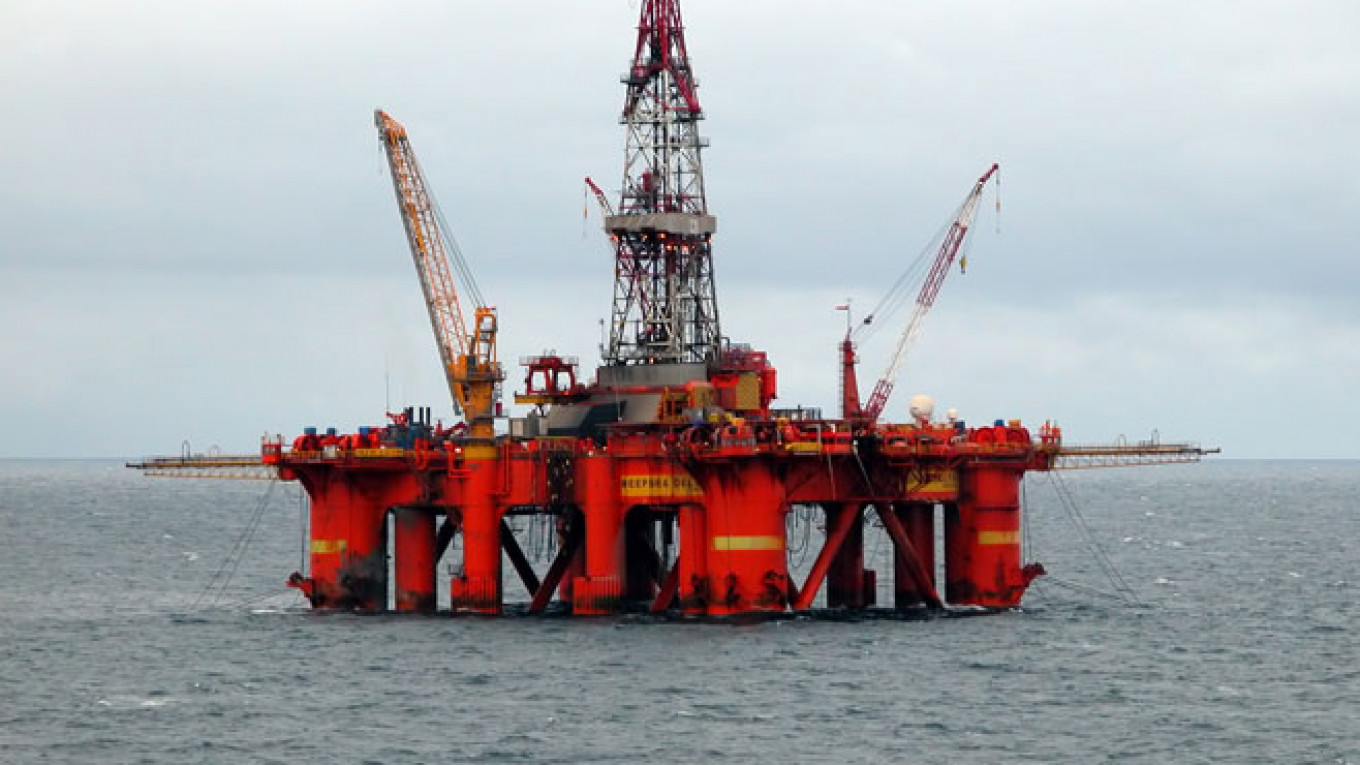Russia’s annexation of Crimea raises important questions concerning the control of oil and gas resources in the Black and Azov Seas.
In the days leading up to the Crimean referendum, several Crimean officials announced their intention to nationalize Chornomornaftogaz, a Russia-based subsidiary of Ukraine’s national oil and gas company Naftogaz.
Later it was confirmed that the Russian army seized the oil and gas production and distribution assets offshore and north of the Crimean border. Additionally, Gazprom approached the Crimean government about assuming control over these resources.
It is evident that Russia is attempting to further distance Crimea from Ukrainian control by taking over the company that supplies Crimea with its natural gas.
Chornomornaftogaz is licensed to exploit offshore deposits in the Black and Azov Seas, some of which lay in Ukraine’s independent exclusive economic zone. But a 2003 Ukrainian-Russian bilateral agreement declares that the Azov Sea a shared internal sea, a fact that could be disputed now that Russia’s border will be extended to include Crimea.
Chornomornaftogaz, because of its lucrative assets and offshore extraction experience, has become one of Ukraine’s largest and most important sources of tax revenue. Not only will seizing Chornomornaftogaz strike a blow to the Ukrainian budget, but also disrupt the development of offshore energy deposits in the Black Sea, which Moscow sees as a potential threat to Russian energy security in the region.
Crimea’s annexation will probably impact exclusive economic zones in the Black Sea, thereby hindering Turkey’s ability to influence the development of the South Stream pipeline. Given Crimea’s importance in Ukraine’s border negotiations with Romania, it will substantially alter the geopolitical dynamic of the Black Sea.
The seizure of Ukrainian oil and gas assets will significantly disrupt Ukraine’s long-term energy policy, possibly leading to increased support for shale exploitation.
Ukraine’s shale reserves have the potential of satisfying nearly one-third of Ukrainian demand for the medium-term. This has likely lead to the increasing number of protests by Russia’s Natural Resources and Environment Ministry over potential contamination of international underground aquifers.
However, given that contamination is unlikely to take place, it seems that Russia seeks to minimize Ukraine’s already limited ability to pursue an independent energy policy in the region.
Joe Parson is a Moscow-based analyst focusing on Russian international energy relations.
A Message from The Moscow Times:
Dear readers,
We are facing unprecedented challenges. Russia's Prosecutor General's Office has designated The Moscow Times as an "undesirable" organization, criminalizing our work and putting our staff at risk of prosecution. This follows our earlier unjust labeling as a "foreign agent."
These actions are direct attempts to silence independent journalism in Russia. The authorities claim our work "discredits the decisions of the Russian leadership." We see things differently: we strive to provide accurate, unbiased reporting on Russia.
We, the journalists of The Moscow Times, refuse to be silenced. But to continue our work, we need your help.
Your support, no matter how small, makes a world of difference. If you can, please support us monthly starting from just $2. It's quick to set up, and every contribution makes a significant impact.
By supporting The Moscow Times, you're defending open, independent journalism in the face of repression. Thank you for standing with us.
Remind me later.






